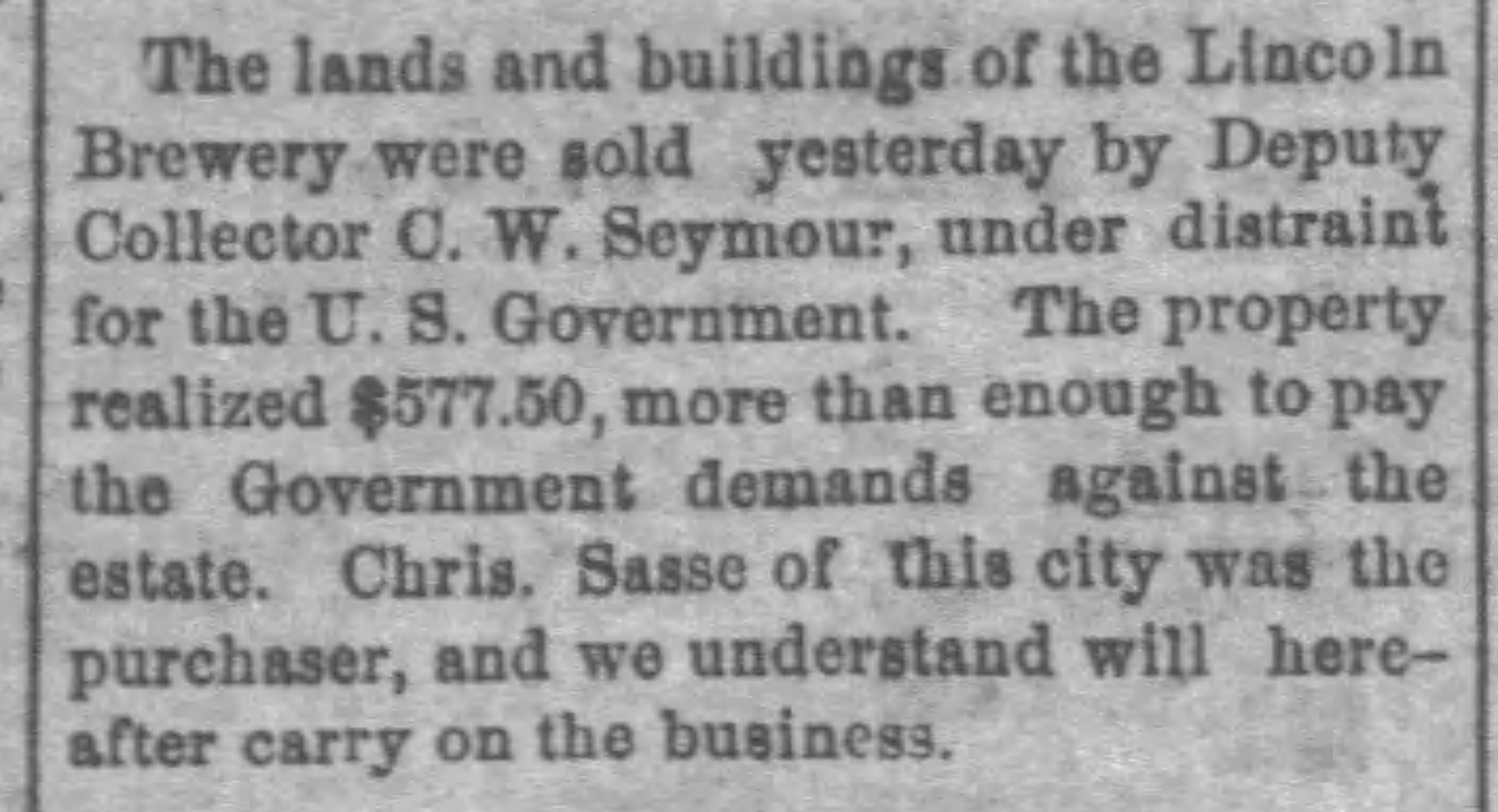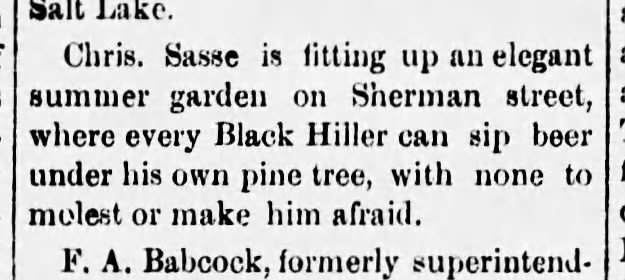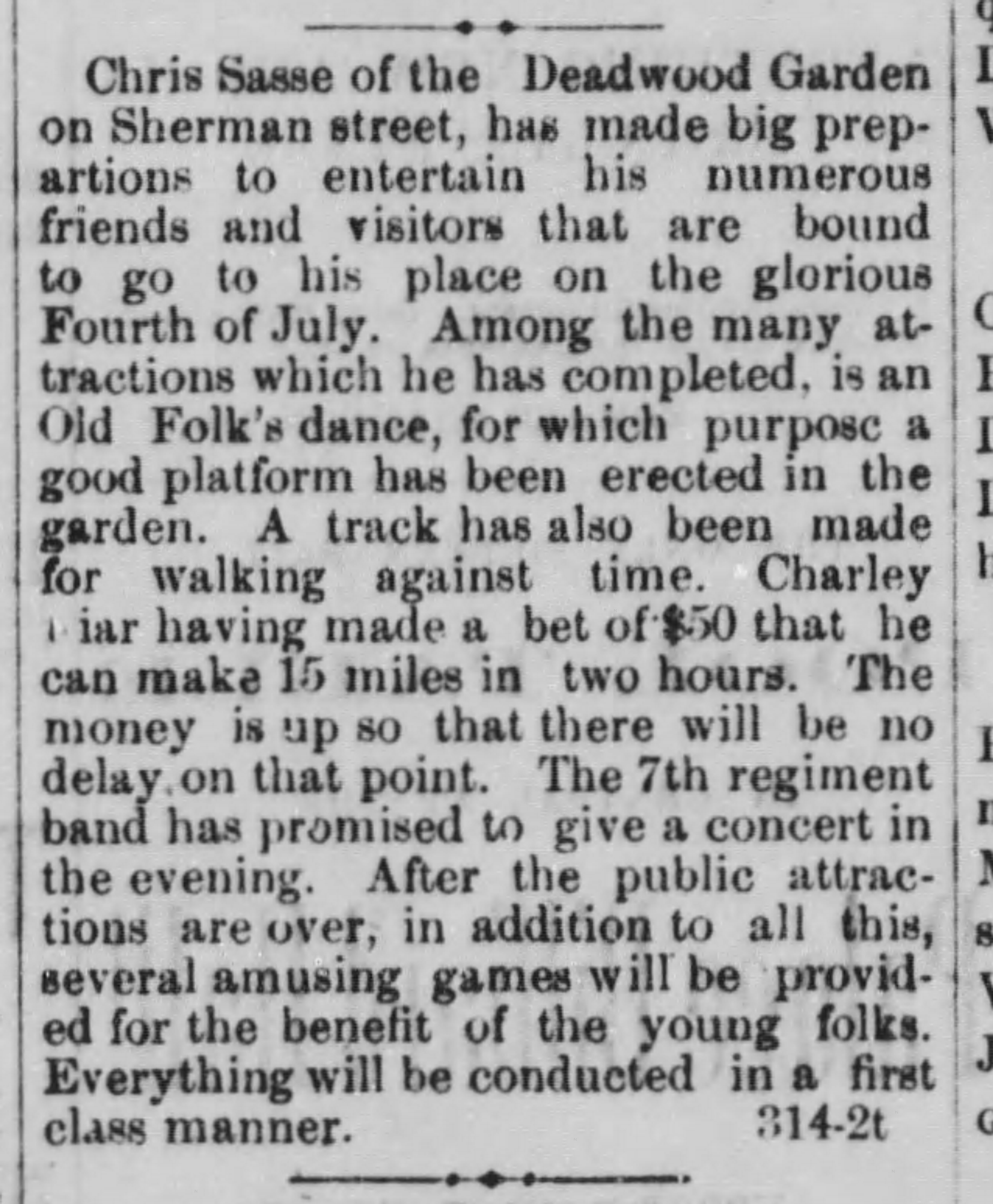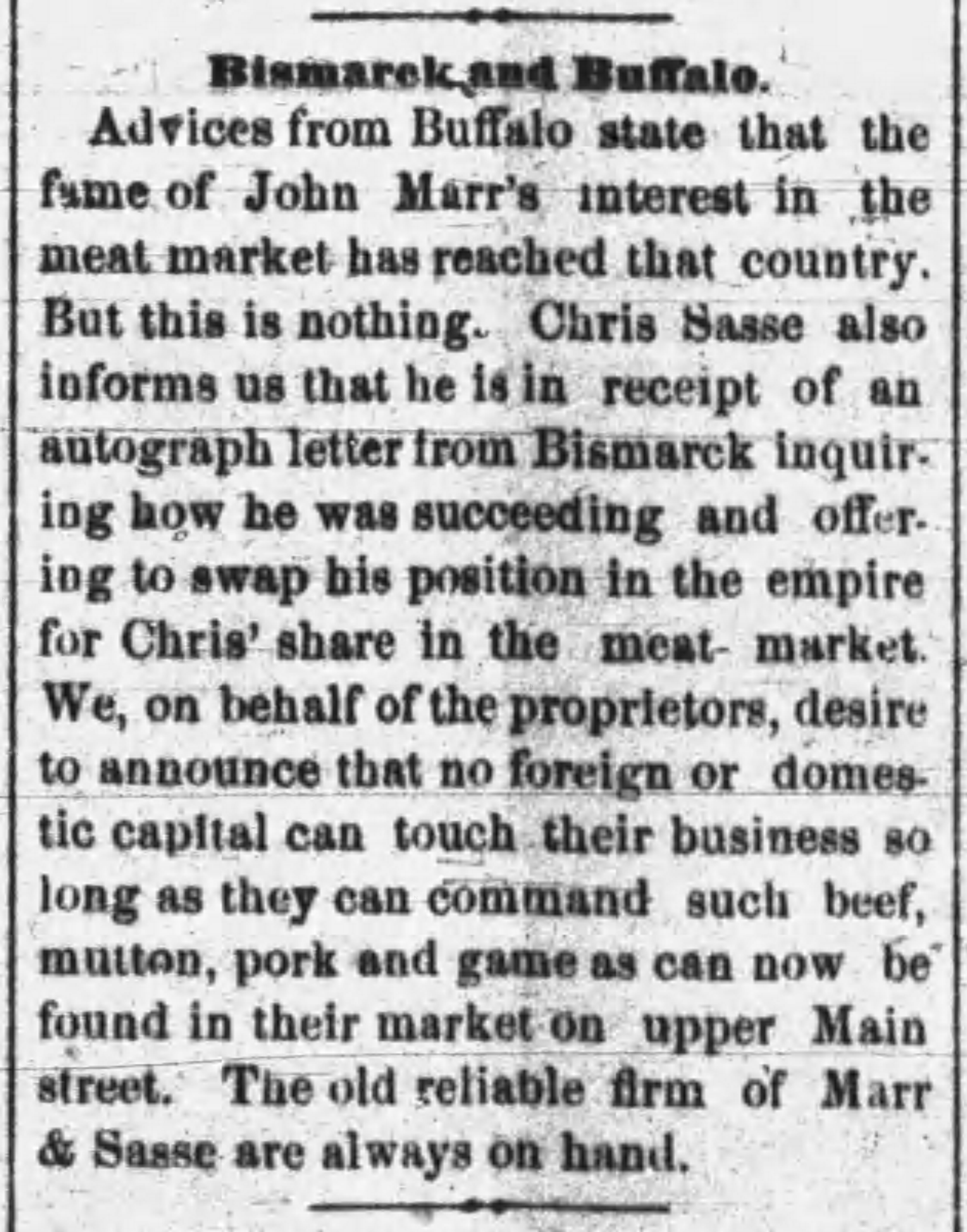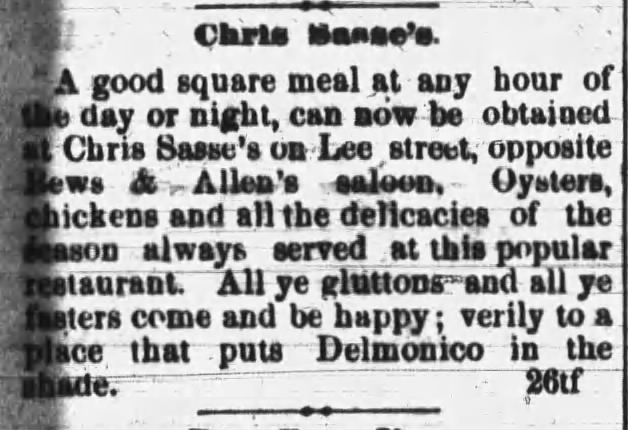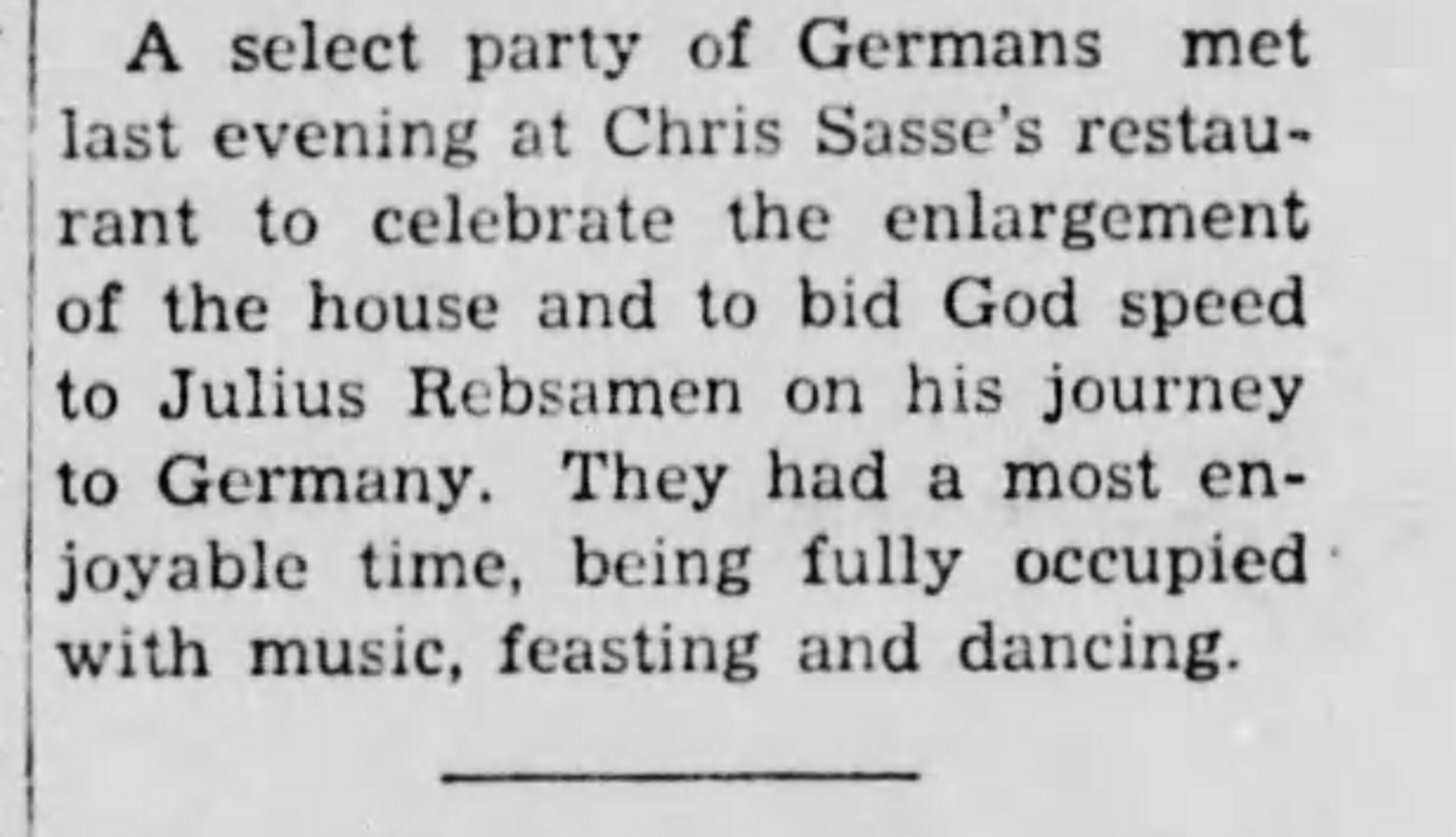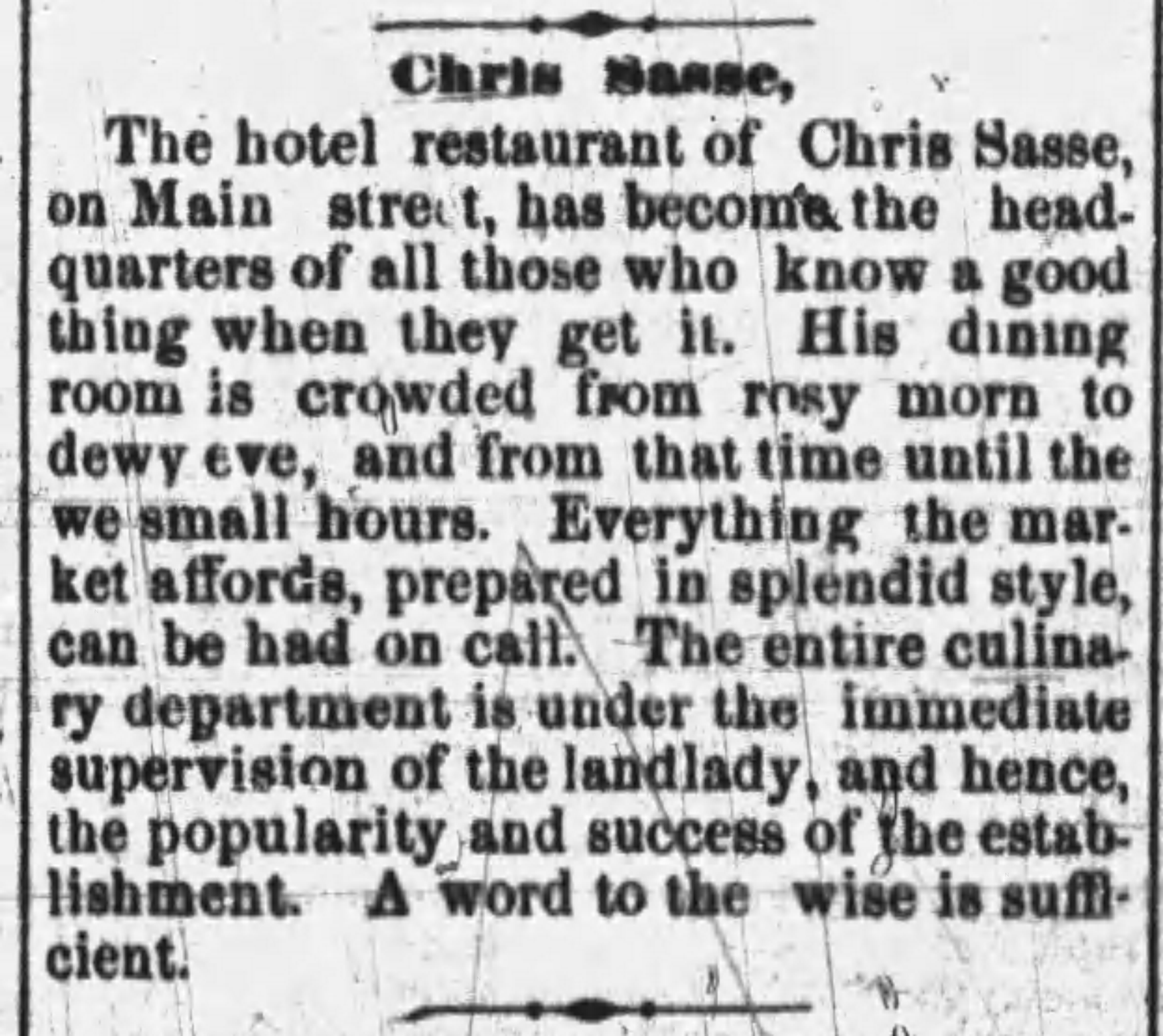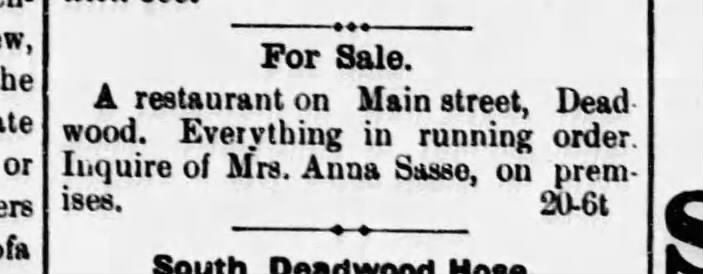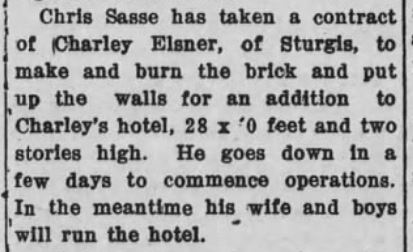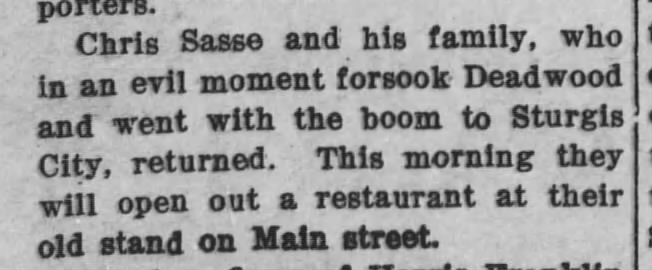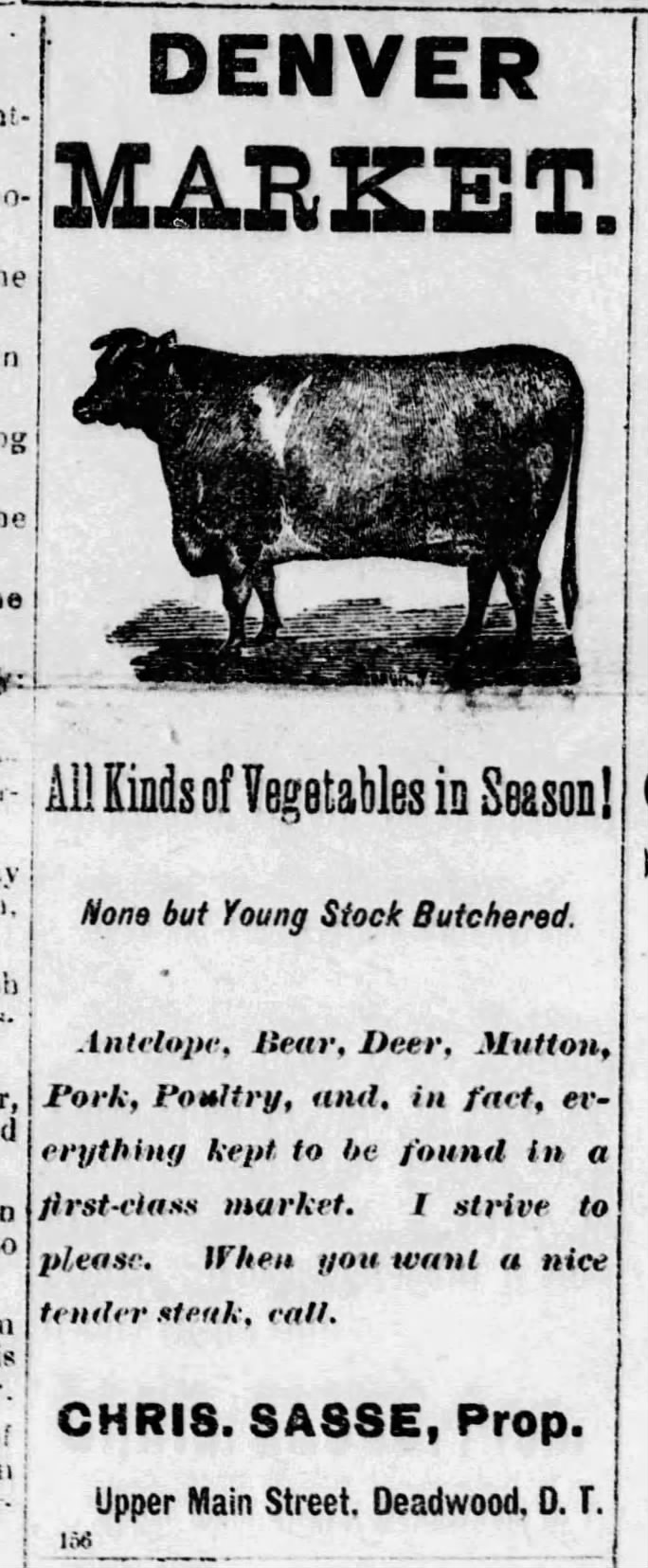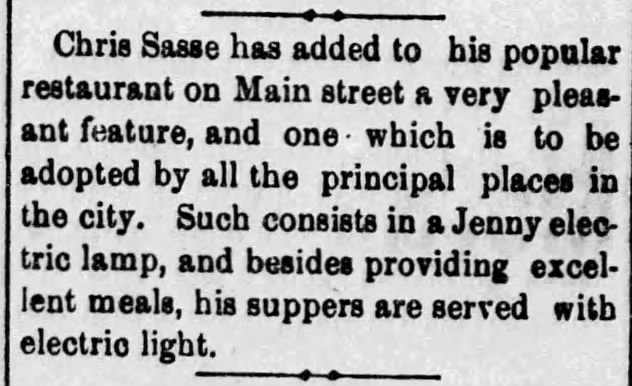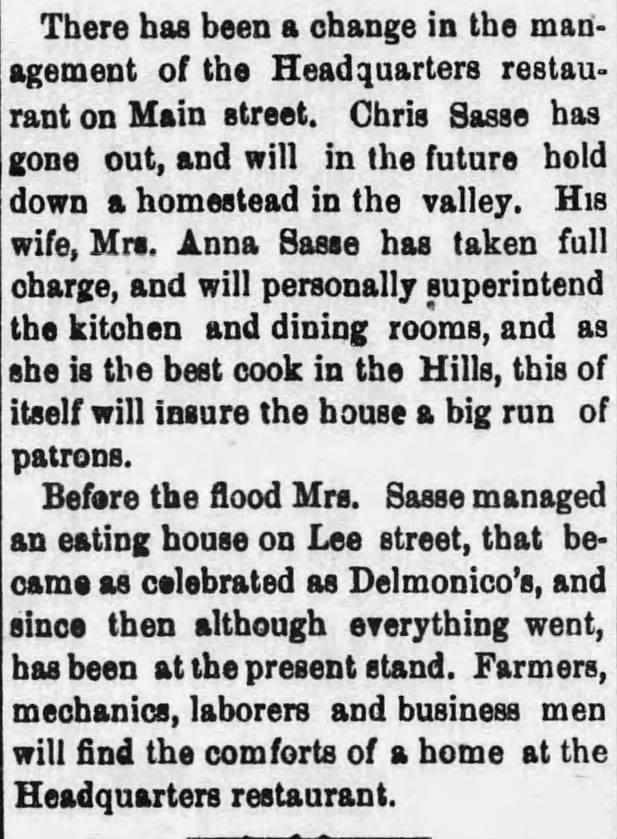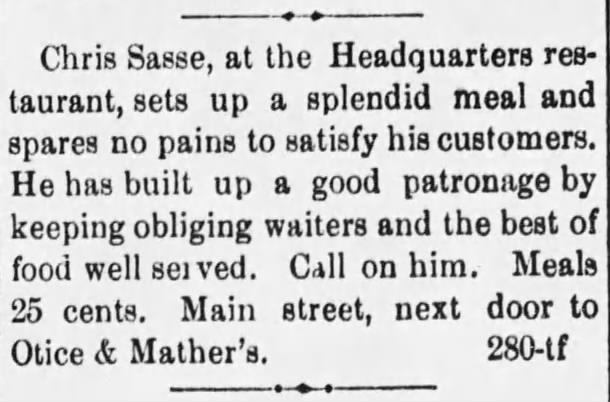|
❧ Lincoln Brewery
Lincoln, Nebraska |
|
❧
bought 20 July 1875 sold before 1877 |
|
❧ Deadwood Garden Saloon
Deadwood, South Dakota |
|
❧
est. 18 June 1880 closed August 1882 |
|
❧ Headquarter's Restaurant
Deadwood, South Dakota |
|
❧
bought August 1882 flooded 16 May 1883 |
|
❧ Headquarter's Hotel & Restaurant
Deadwood, South Dakota |
|
❧
re-opened 5 Jun 1883 closed September 1884 |
| Related: | |
| ❧ Christian Frederick Wilhelm Sasse |
❧ Christian Sasse's Restaurant(s)
(and Other Related Endeavours)
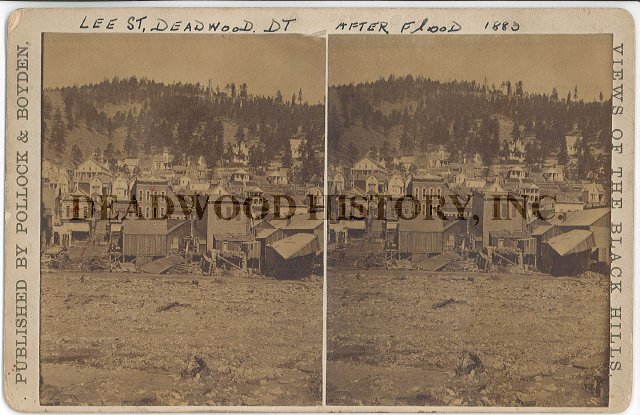
Lee Street after the May 1883 flood,
the Headquarter's Restaurant being one of the edge buildings in the foreground
After the 1871 Chicago Fire, Christian and his brother August moved their families out of Illinois to Lincoln, Nebraska. The former eventually settling nearby in Midland and the latter to the southwest in Spring Creek.
Being a new and growing white settlement on stolen Souix land, there were many opportunities for incoming pioneers, and Midland quickly became a hub for trade and transportation, with the Union Pacific Railroad passing through. Additionally, the region's fertile soil and vast grasslands supported agriculture and ranching, making Midland an agricultural powerhouse.
In addition to many bricklaying and construction projects in the surrounding area, Christian took his first foray into the food and drink industry on 30 July 1875, buying the Lincoln Brewery from the U.S. government for $577.50 with a partner Otterbein. The brewery had previously been seized under distraint from its former owner Michael Ulmer, thanks to over $400 in back taxes. Ulmer had run the Brewery for several years before falling ill with consumption, confined to bed for 3 months before dying in the Brewery.
It's unclear how long they ran the Brewery, but by April 1877, Christian had his sights set further north in the Black Hills, and the family relocated to Deadwood, South Dakota by year's end. After the 1879 fire, perhaps as a way to fill in between jobs as the town slowly rebuilt, Christian's interest resurfaced, and he began informally selling beer, "officially" selling it in a small establishment on Sherman Street on 18 June 1880 and supplying "segars and drinkables" to community events through 1881.
Not much is known about the initial days of his first saloon, though it was given mention when his bartender Louis Prince attempted murder/suicide with his wife mid-October 1880.
It was quite successful and rose in reputation as Christian added an "elegant summer garden [...] where every Black Hiller can sip beer under his own pine tree, with none to molest or make him afraid" in April 1881. It was from this that the saloon became known as the Deadwood Garden, and would add several amenities such as a timed walking race track and bandstand. It grew in popularity thanks to several organized events including a fireman's race on 4 June 1881 (winner got a free keg of beer) and big July 4th celebrations that would bring such entertainment as the 7th Regiment Military Band.
On the week of 21 September 1881, the Deadwood Garden saloon was moved from Sherman Street to Lee Street, closer to Main Street, reopening at its new location on 27 September 1881. Around this time, Sasse also became a partner (as Sasse & Marr) in the Denver Market on upper Main Street. Originally opened in 1877 by R.H. Geary & Company, the Denver Market was a very popular market that sold seasonal vegetables and most kinds of meats (such as antelope, bear, deer, mutton, pork, and poultry).
With experience in bars and meat, Christian bought the Headquarter's Restaurant on Lee Street in late August 1882. The Headquarter's Restaurant was originally opened by the Rosebrough Brothers on 2 November 1879, after the 1879 fire. It passed hands around 16 March 1882 to Colonel R.S. Hukill, who previously owned The Eataphone on lower Main Street (opened 1878) and who rebranded the Headquarter's to the Eataphone. It would then be sold to Christian and Anna only half a year later.
Christian and Anna took charge, opening the restuarant 23 August 1882, where a "good square meal" could be obtained "at any hour of the day or night" for 25 cents. Options included "oysters, chickens and all the delicacies of the season." As one advertisement put it: "All ye gluttons and all ye fasters come and be happy; verily to a place that puts Delmonico in the shade" (Delmonico being a popular food establishment on Main Street).
Needless to say, the restaurant was very successful, popular and crowded enough that it received an expansion on 29 April 1883.
Unfortunately, it is in the midst of success that Deadwood would experience its worst flood on Wednesday, 16 May 1883. The 1883 flood would end with 4 dead and $250,000 in damages were reported (around $8 million in 2023).
Most of Lee Street (and much of the other streets that crossed the river) would be washed away. The Headquarter's would survive the flood waters, forming one edge of the street's total destruction, but was rendered fully unstable and was ultimately torn down. Christian and Anna moved the restaurant to Main Street, with Anna providing much of the management. It officially reopened by 5 June 1883 and reclaimed it's title as a popular hotel and restaurant, a "headquarters of all those who know a good thing when they get it."
The restaurant was put up for sale on 8 August 1883 by Anna Sasse to prepare for an upcoming long hotel expansion job up in Sturgis City (now just Sturgis). Ultimately, Anna and the children remained in Deadwood and minded the hotel and restaurant as Christian worked in the Sturgis City from September to November. He returned in December, formally rejoining the restaurant on 1 January 1884.
Business, by all accounts, were booming for both the restaurant and the market, with the restaurant getting electricity in 14 May 1884.
In early August 1884, Christian deconstructed the family's home brick-by-brick and rebuilt it on his valley homestead, located to the northwest of Deadwood by the settlement of Spearwood (what would become Bell Fourche). The work of deconstructing and transporting the brick to the homestead would take most of the month, finally fully transported by 28 August 1884. Anna ran the Headquarter's Restaurant for the following month, until the homestead was fully habitable, before closing it permanently and moving herself and the children to join Christian in the valley.
While this would officially end Christian's ownership of such business, he would continue to work in the industry now and then, including helping out at local saloons such as the Otterbein Beer Hall on Lee Street in 1885.
